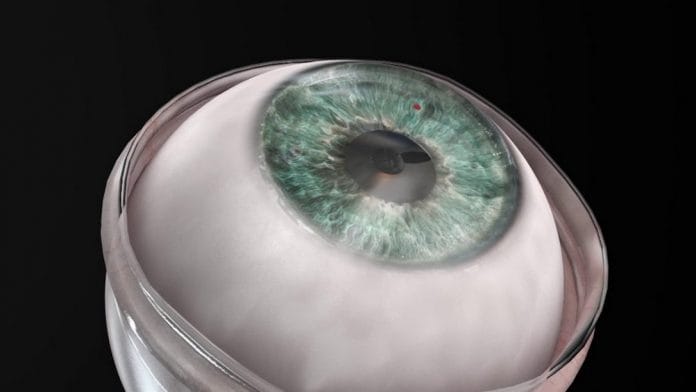New Delhi: A 78-year-old man was able to regain his eyesight after 10 years, with the help of synthetic cornea that has been developed by an Israeli startup.
According to a report in the Israel Hayom, the patient, who has not been identified, is the first to be implanted with artificial cornea by Israeli firm CorNeat Vision.
The CorNeat KPro implant has been designed to replace deformed, scarred and opacified corneas (loss of normal transparency of cornea). The procedure was conducted by Irit Bahar, head of the ophthalmology department at the Rabin Medical Center in Petah Tikva.
“The surgical procedure was straightforward and the result exceeded all our expectations,” Bahar said.
The patient was able to recognise his family and read text once the bandages were removed from his eyes.
“The moment we took off the bandages was emotional and significant. Moments like these are the fulfillment of our calling as doctors. We are proud of being at the forefront of this exciting and meaningful project which will undoubtedly impact the lives of millions,” Bahar added.
The implant has been designed in such a way that it can restore the vision of blind patients right after it is administered. It easily integrates within the eye walls and doesn’t rely on donor tissue. Dr Gilad Litvin, chief medical officer at CorNeat Vision, said the procedure is “relatively simple” and takes less than an hour.
“We expect it will enable millions of blind patients around the world, even in areas where there is no corneal practice nor culture of organ donation, to regain their sight,” Dr Litvin added.
Also read: A Norwegian startup wants to build affordable housing from 100% recycled plastic
‘Artificial cornea as a first line treatment’
In August 2019, Israel’s health ministry had approved trials of the CorNeat implant to be run on 10 patients suffering from corneal blindness.
In a statement Tuesday, Aley-Raz, CorNeat Vision’s co-founder, said, “Given the visual performance of our device, the expected healing time and retention, and the fact that it cannot carry disease, we plan to initiate a second study later this year with broader indications to approve our artificial cornea as a first line treatment, displacing the use of donor tissue used in full thickness corneal transplantations.”
Corneal diseases are among the major causes of blindness among humans. In 2011, the National Programme for Control of Blindness (NPCB) in India had estimated that there were at least 1,20,000 corneal blind people in the country. It had also estimated an addition of 25,000 to 30,000 cases of corneal blindness in India each year.
Also read: Do you trust your doc-bot? Here are three ways AI-driven healthcare can succeed post-Covid






